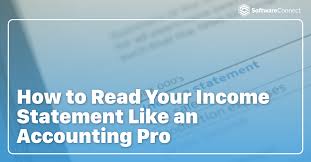when do you get tax returns 2021
Why You Should I Hire an Accountant For a Small Company performs accounting functions such as auditing, financial statement preparation, prepare individual and corporate tax returns
He or She is a practitioner of accounting or accountancy. Why You Should I Hire an Accountant For a Small Company has demonstrated competency through their professional associations’ certification exams is certified to use titles such as Chartered Accountant, Chartered Certified Accountant, or Find an accountant. Such professionals are granted certain responsibilities by statute, such as the ability to certify an organization’s financial statements, and may be held liable for professional misconduct. Non-qualified accountants may be employed by a qualified accountant or may work independently without statutory privileges and obligations.
In the United States, To be as a licensed accountants are accounting and tax services. In certain states Unlicensed accountants may be Certified Internal Auditors (CIAs) and Certified Management Accountants (CMAs). The difference between these certifications is primarily the legal status and the types of services provided, although individuals may earn more than one certification. Additionally, much accounting work is performed by uncertified individuals, who may be working under the supervision of a certified accountant. As noted above, the majority of accountants work in the private sector or may offer their services without the need for certification.
The training is required for a Why You Should I Hire an Accountant For a Small Company does as a professional in the US requires specific guidelines:
- Certificate: Several months to a year
- Associate degree: 1–2 years
- Bachelor’s degree: 3–4 years
CPA: 5 years of education (150-sester college credits) plus 1–2 years of work experience (length of work experience required depends on which state is granting the license)
- Master’s degree: 1–2 years
- Doctoral degree: 3–5 years
A CPA is licensed by a state to provide auditing services to the public. Many CPA firms also offer accounting, tax, litigation support, and other financial advisory services. The requirements for receiving the CPA license vary from state to state, although the passage of the Uniform Selecting a Small Business Accountant Examination is required by all states. This examination is designed and graded by the American Institute of Selecting a Small Business Accountant(AICPA).
A PA (slots referred to as LPA—Licensed Selecting a Small Business Accountant) is licensed by the state to practice accountancy to the same extent as are CPAs, although in so states PAs are not permitted to perform audits or reviews (notably Iowa, Minnesota, Oregon, & South Carolina). Why You Should I Hire an Accountant For a Small Company as a professional PA’s ability to practice out of state is very limited due to most states having phased out the PA designation. While most states no longer accept new PA license applicants, four states still accept PA applicants for practice privileges within the state. As with the CPA, the requirements for receiving the PA license vary from state to state. Most states require a passage of either two or three (out of four) sections of the CPA exam or passage of the Comprehensive Examination for Accreditation in Accounting which is administered and graded by the Accreditation Council for Accountancy and Taxation (ACAT).
Income statement (also referred to as profit and loss statement (P&L), revenue statement, statement of financial performance, earnings statement, operating statement, or statement of operations) is a company’s financial statement that indicates how the revenue (money received from the sale of products and services before expenses are taken out, also known as the “top line”) is transformed into the net income (the result after all revenues and expenses have been accounted for, also known as Net Profit or the “bottom line”). It displays the revenues recognized for a specific period, and the cost and expenses charged against these revenues, including write-offs (e.g., depreciation and amortization of various assets) and taxes. The purpose of the income statement is to show managers and investors whether the company made or lost money during the period being reported.

